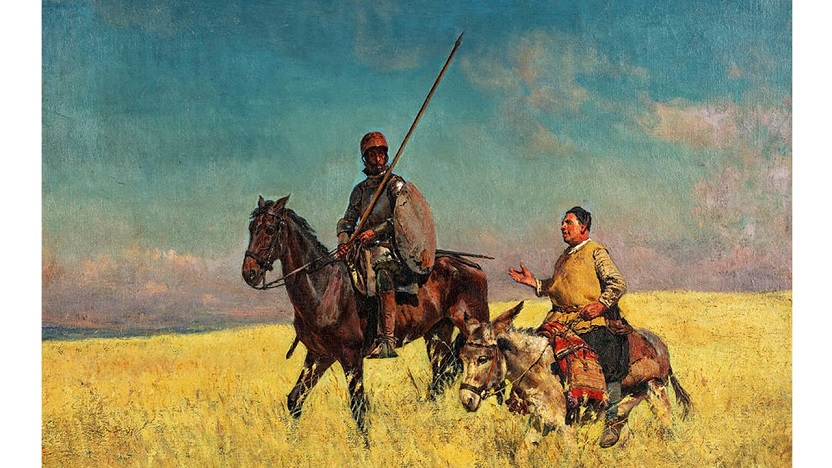.
Friendship
When was it first struck up? Nobody knows.
It’s carried us through heydays, drabs, and falls.
An unsown balm, ex nihilo it grows
Like capers from the cracks in old stone walls.
Previously published in The Lyric.
.
.
Rhyme of History
So-called public opinion has forced common sense
Into the shadows, leaving it nowhere to go
Other than hiding places barely a stone’s throw
From days of rage, arson and violence.
Our so-called intellectuals fiddled on (while flames
Took a revolting liking to our city centers),
Leaning on legacies of sometime mentors
And virtue-signaling in well-paid primetime games.
The Zeitgeist (what the hive mind’s sometimes known as) wags
The world and people hop on board to sing along.
Spirals of silence drown out any other song,
And given time all but the fiercest spirit flags.
.
.
Stephen M. Dickey is a Slavic linguist at the University of Kansas. He has published widely on Slavic verbal categories, and has published translations of Bosnian, Croatian, and Serbian fiction and poetry including Meša Selimović’s Death and the Dervish, Borislav Pekić’s How to Quiet a Vampire, and Miljenko Jergović’s Ruta Tannenbaum. He has published poetry in various journals including Shot Glass Journal, Trinacria, The Lyric, Rat’s Ass Review, Lighten Up Online, Better Than Starbucks, Asses of Parnassus, and Blue Unicorn.















“Rhyme of History” is a well-conceived and apt depiction of the current status of public opinion as manipulated by the so-called intellectuals that like Nero, both feed and fiddle at the fires virtually, and sometimes physically, burning down our societal bonds and symbols.
Thank you Roy,
This is an outtake from a project that I ended up not being able to stick with, I’ll spare you the details. Margaret below noted an irregularity that should be corrected.
Yikes, Stephen M., you have a triple! I know Stephen J. Dickey, and have seen your work here and elsewhere, but perhaps Mike Bryant could change your middle initial back to M. on the title of this post, before Stephen A. spreads confusion. If you so desire, of course.
“Friendship” is a magnificent quatrain. It contains and inspires much thought and seems to keep growing although clearly complete in these four lines.
“Rhyme of History” offers an excellent ending. I do wonder, though, whether something might be missing from lines 4 and 7, which appear to be shorter than the others.
Thank you Margaret,
And your point is accurate, I guess those are the wages of starting something in an unusual meter (iambic hexameter) and forgetting about that when coming back to it.
Thanks especially for giving it enough attention to uncover this flaw. I will see if there is a way I can revise it.
I know of a Shakespeare scholar in California with the same name and surname, and there was even a namesake at my place of employment for a while. The odds are lower that these would have the “ph” and not a “v”.
“Friendship” – I had just one complaint about that: I wanted more :). Such a fitting meter for contemplation in “Rhyme…”.